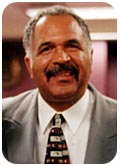 |
|||||||||
|
| home | our mission | contact us | issue archive |

Feb 2001 / from the source :: email this story to a friend

Where's the Party, Post-Nader?
By Tim BarnhartGreens continue quest for progressive politics in Missouri. St. Louis Greens are disappointed that neither Ralph Nader nor any other Green Party candidate won the 2% of the vote necessary to keep the party on the statewide ballot in Missouri. But the Greens aren't going away. Greens were organized in St. Louis for ten years before their successful effort to get Nader and other Greens on the Missouri ballot, and the 2000 campaign was just the start.

Patricia Turek, Ralph Nader, and Mary Auer In spite of loss of statewide ballot status, the 2000 election brought some Green success. In many respects its first-time effort was much more productive than other more established parties. More meaningful than Nader's 38,488 Missouri votes were the thousands of Missourians (including 1,626 in St. Louis City and County) who cast straight Green Party ballots. Five district candidates, including St. Louisans Mary Auer, Patricia Turek, Jason Toon and Frank Eller, Jr., won Green Party ballot status for their districts. Greens earned a measure of legitimacy from established progressives when both Missouri NARAL and the Metropolitan St. Louis Women's Political Caucus endorsed two Green candidates (Auer and Turek) over incumbent Democrats.
Party is focused on progressive principles. The Greens are a progressive ideologically based party, in contrast to the increasingly indistinguishable Democrats and Republicans, who have degenerated into competing clusters of special interests. Many regard the Green Party as what the Democrats used to be before selling out to Big Business.
While the term "green" conjures up images of environmentalism, that just scratches the surface. The party's ideological base is its 10 Key Values: ecological wisdom, grassroots democracy, social justice, nonviolence, decentralization, community-based economics, feminism, respect for diversity, personal and global responsibility, and future focus and sustainability. These ideals have inspired these political stands and direct action by Missouri Greens.
Uncompromisingly progressive policies for economics, taxation, environmental protection, civil rights, abortion rights. Greens favor enactment and implementation of living wage legislation, support universal single-payer health care, and oppose corporate welfare schemes like the proposed public subsidies for the St. Louis Cardinals. Greens oppose the outrageous rate hikes for natural gas. A long-time activist organization in St. Louis, the Gateway Green Alliance (GGA), organized protests against the Stericycle medical waste incinerator in north St. Louis, inspiring Alderman Freeman Bosley, Sr. to introduce two bills dealing with the subject. The Gateway Greens also organized Missouri Resistance Against Genetic Engineering (MORAGE) to protest, educate the public about and seek appropriate legislation and administrative policies about genetic engineering, including mandatory labeling and a moratorium on food products containing genetically engineered organisms.
Ethics and campaign reform. As many voters were attracted to the Greens by Nader's impeccable integrity as were by his principled progressive stands. While partisan Democrats put politics above principle in defending President Clinton's unconscionable acts, Nader supported both impeachment and removal of the President.
Greens also understand that in a grassroots democracy, process is as important as substance, and that election fraud and other corruption cannot be tolerated, regardless of which side appears to benefit from the wrongdoing. Every vote should count, but just once. A side effect of any "ballot box stuffing" by establishment Democrats or Republicans was to increase the vote Greens needed to maintain ballot status.
Greens favor reforms that empower the powerless and strip corporations of their undue influence over government, such as public funding of elections.

Zaki Baruti Diversity in government. In 2000, State Treasurer Nancy Farmer was the only candidate out of 16 Democrats and Republicans on Missouri's statewide ballot who wasn't a white male. Missouri Greens made a concerted effort to nominate a ticket that was truly representative of the population. Its seven statewide candidates ranged in age from 22-to-77, and included a Native American nominee for vice-president, two African Americans, and three women. Greens promote a Black/Green Coalition that gives African Americans meaningful participation and party leadership, seeking to free them from the bondage of the Democrat plantation, where their loyal votes are harvested and taken for granted. Greens gave their African American candidates their most prominent nominations, Evaline Taylor for U.S. Senator and Zaki Baruti for Governor. Greens favor establishing a national commission on reparations for African Americans, support reforms such as proportional representation and instant runoff voting that would promote diversity, and promote many of the activities and proposals of the Coalition Against Police Crimes and Repression.
Labor reform. Greens support the repeal of repressive provisions of the Taft-Hartley and Landrum-Griffin Acts and oppose the World Trade Organization. Greens would prohibit mandatory overtime, striker replacements and the use of U. S. prisoners' slave labor to produce goods and services for sale to the public.
Reform of drug laws. Greens would decriminalize the possession of drugs, beginning with those that are least dangerous or used for medical purposes, and legalize the growth and production of industrial hemp. All nonviolent prisoners of the so-called "drug war" should be released.
St. Louis organization has activist tradition. Prior to the 2000 election effort, the GGA was active influencing public policy through education and by public protests and other direct action. The GGA began in 1990 with the Greens-n-Beans food co-op and the founding of its environmental and social justice newsletter, the Compost Dispatch. It has organized citizen protests against the Times Beach dioxin incinerator, a proposed medical waste incinerator in St. Louis, the transportation of irradiated fuel rods through St. Louis, the closing of Regional Hospital, a proposed north St. Louis golf course and genetic engineering. This activist tradition continues with ongoing protests against the Stericycle medical waste incinerator in north St. Louis and St. Louis' involvement in the production of genetically modified organisms.
The GGA has produced "Green Time," St. Louis' only environmental television talk show, for four years. The show airs three times a week on the public access cable channel in the City of St. Louis, and the group would like for cable systems in St. Louis County to air the show as well. The show received the DHTV Excellence Award for Best Informational Show in 1999.
The group also established "Synthesis/Regeneration," a quarterly magazine of "green social thought" that enjoys a national circulation.
The epicenter of Green activity in St. Louis is the Gateway Green Center at Delmar and Rosedale, which the group opened in 1999. This storefront plays host to a variety of environmental and social justice events and benefit concerts. During a visit to the Center in June 2000, Nader observed that it was one of only two year-round Green Party storefronts in the nation.
Gateway Greens meet there almost every Wednesday evening. At the "Green Wednesday" educational assembly on the first Wednesday of every month, the public is invited to a formal (well, as formal as Greens get) program about a pre-announced topic. (The meeting on February 7 will discuss legislative initiatives in Missouri and St. Louis.) Other Wednesday meetings include the monthly business meeting, an informal political discussion and a newsletter work session. Things typically start at 7:00 p.m.
Tim Barnhart is a retired attorney. He is a member of the Gateway Green Alliance and edits its monthly newsletter, the Compost Dispatch.
Church and State | Games | Expatriates | Communities | From the Source
It's All Happening | Young Minds | The Ordinary Eye | Elsewhere
Sights and Sounds | Media Shoegaze | A Day's Work | From the Editor© 2001 The Commonspace